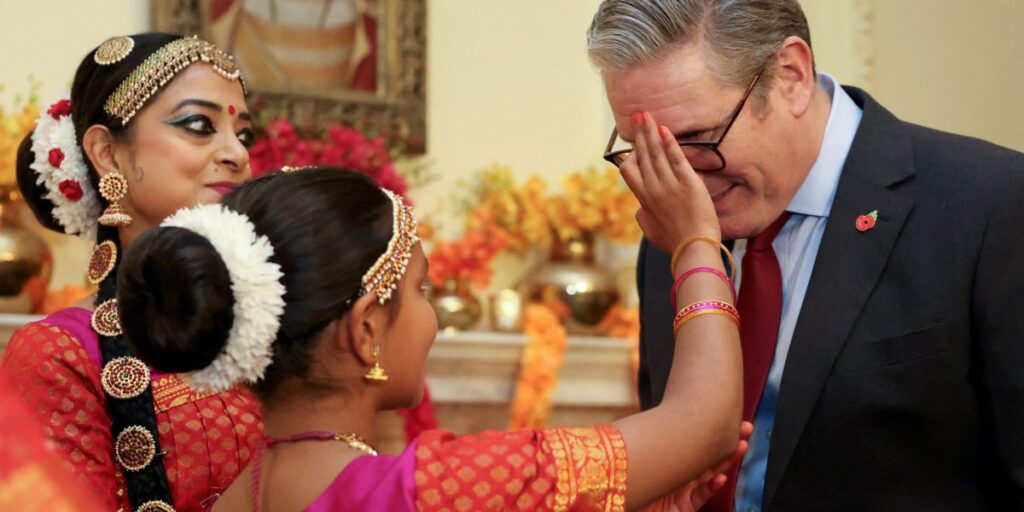Speaking at Rashtrapati Bhavan, the magnificent home of India’s president, in April 2002, former U.K. Prime Minister Boris Johnson’s assessment of free trade agreement (FTA) talks between the UK and India was typically confident. “We are telling our negotiators: get it done by Diwali in October,” he said after receiving a ceremonial welcome on the grounds of the colonial-era building designed by Sir Edwin Lutyens. But as often proved the case when Mr. Johnson promised to get things done, his actions sadly failed to meet the lofty ambition of his words. Two years on, the promised FTA is yet to be signed.
Encouragingly, the Labour government has made clear its determination to complete the task, a commitment underlined by visits to India this year by senior figures including Deputy PM Angela Rayner, Secretary of State for Business and Trade Jonathan Reynolds, and Foreign Minister David Lammy who said: “Our Free Trade Agreement negotiations is the floor not the ceiling of our ambitions to unlock our shared potential and deliver growth, from Bengaluru to Birmingham.”
Talks to resolve several key issues are expected to resume later this month following an eight-month hiatus due to elections in both countries. India is pushing for more access to the U.K. market for its skilled professionals in sectors like technology and healthcare, while the U.K. wants greater opportunities in India for its service industries like telecoms, legal services, and banking. Balancing those wish lists and then selling the deal to their respective electorates will require care in London and New Delhi.
The U.K. also wants India to cut import duties on goods ranging from meat and chocolate to electric vehicles and Scotch whisky. Indian Prime Minister Narendra Modi knows, however, that those tariffs help to protect jobs in his country.
Take Scotch whisky which is popular in India but currently makes up just 2% of the market due to the 150% tariff on imported liquor. A cut to the import duty could drive sales of up to £1 billion over the next five years, according to The Scotch Whisky Association, but it might threaten sales of India’s homegrown whisky brands which have been soaring in recent years.
For all that, the foreign secretary’s ambition is correct. According to the UN’s COMTRADE database, the value of exports by India and the U.K. was nearly equal in 2023. India’s population is more than 20 times greater than that of Britain. Further, India is predicted to become the world’s third-largest economy by 2030 with a large and affluent middle class, making it vital that the U.K. puts itself in pole position to benefit.
On his trip to India, Mr. Johnson visited U.K.-owned JCB’s factory in Gujarat and met India’s wealthiest man, Gautam Adani, whose business empire includes industries such as clean energy, supply chains, and infrastructure. JCB and the Adani Group are just two examples of businesses in India that could use a dynamic, meaningful FTA to help drive economic growth in the U.K., particularly in technology, commerce, energy transition, and research and development.
As well as benefiting the U.K.’s services and intellectual property sectors, a trade deal would provide a welcome boost to higher education, one of our greatest exports, but one facing financial challenges. The Mumbai-based SP Jain School of Management which launched a new education center in Canary Wharf last year, and the University of Southampton, which recently became the first U.K. university to be granted a license to create a campus in India, show what can be achieved.
My enthusiasm for an FTA is influenced by my career. I was born and brought up in a humble family in India and came to the U.K. in 2001 with very little. In London, I founded and scaled up fintech companies that harnessed cutting-edge technologies to make international payments more accessible and affordable. After my entrepreneurial career, I served as Deputy Mayor of London for Business for two terms, championing businesses and promoting entrepreneurship, including among members of the Indian diaspora.
While there are certainly hurdles to a deal, there is good cause for optimism. India’s FTAs with Australia and the UAE came into effect in 2022. Imports from countries with which India has FTAs will be 38% higher this year than in 2019, according to research by the think tank GTRI. If that pattern was repeated, the value of U.K. exports to India would rise from £16.6bn to almost £23bn. According to estimates, an FTA with the U.K. could add up to £8.6bn to India’s GDP.
Fourteen rounds of talks between the two countries since January 2022 have made good progress with agreement in principle or broad consensus reached on 24 of the 26 chapters in the FTA. When the talks resume, the U.K. Government should urge negotiators to finalize the proposed deal at pace and provide a credible timetable for the FTA’s introduction.
As Chair of Labour Friends of India, I was delighted to attend a recent Diwali event in Downing Street hosted by Keir Starmer. A performance of the traditional Indian Kuchipudi dance and the famous No 10 staircase festooned with garlands of orange marigolds made for an impressive and moving sight.
After lighting a diya oil lamp, Prime Minister Keir Starmer spoke of the U.K.’s “valued relationship” with India and the desire to build “a long and shared future together”. Whilst it’s not all in the UK’s gift alone, my hope is that when we meet again next year to mark Diwali, a new and meaningful FTA will be in place, providing an even greater reason for celebration.
More must-read commentary published by Fortune:
The opinions expressed in Fortune.com commentary pieces are solely the views of their authors and do not necessarily reflect the opinions and beliefs of Fortune.
